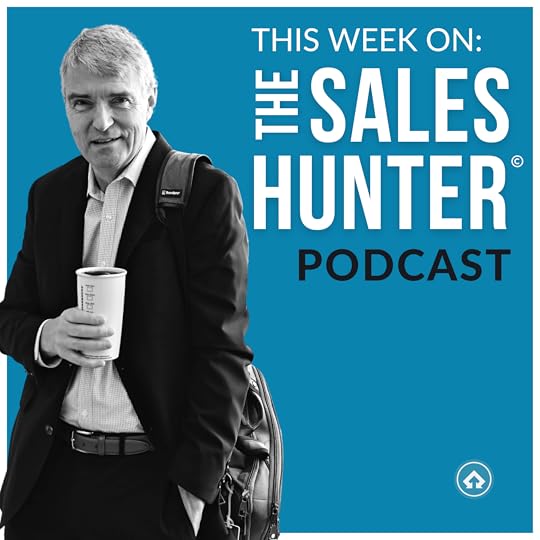The Ultimate Sales Process Check-Up
When was the last time you evaluated your sales process?
Don’t wait until sales slump. Your customers are changing, the marketplace is shifting, and this economy is unpredictable. You need to be evaluating your sales process continuously if you want to stay ahead.
1. What’s the outcome you create?It’s not about what you sell. It’s about the outcome you create for your customer.
Go back and look at your last five deals. What was the customer’s outcome? Has that outcome changed over time? Does it suggest you need to tweak your message or appeal to a different customer segment? The outcome drives everything.
2. Why do customers buy from you?This isn’t the same as the outcome. This is about why they chose you over a competitor.
Ask your customers directly. You may uncover strengths you didn’t realize you had—traits you need to double down on. Play to your strengths. Amplify what sets you apart.
 3. What is your conversion rate?
3. What is your conversion rate?How many proposals turn into closed deals?
Watch for slippage between the verbal “yes” and the signed contract. Right now, that gap is growing for many salespeople because of economic uncertainty. Track your conversion rate closely. It’s a direct measure of your personal productivity.
4. What is your discount rate?How often do you discount to close a deal—and by how much?
If your discount rate is creeping up, ask why. Has the market shifted? Are customers pushing harder on price? Or are you leaning on discounting as a crutch? You never want buyers choosing you only for price.
 5. How long is your sales cycle?
5. How long is your sales cycle?Your sales cycle is a critical productivity metric.
If it’s getting longer, ask why. More decision makers? Extra layers of approval? If it’s getting shorter, that’s also a signal. Something has changed—and you need to know what.
6. What % of your customers fit tight into your ICP?Over time, salespeople get sloppy. They chase deals outside their Ideal Customer Profile (ICP).
It doesn’t have to be 100% perfect, but if only 30% of your customers fit your ICP, something’s off. Either you’re pursuing the wrong customers or you’ve defined your ICP incorrectly.
7. How are you spending your time?Most salespeople don’t spend nearly enough time actually selling.
Look at your calendar. How much of your day is truly customer-facing time (CFT)? And then break that down—time with existing customers versus new prospects. If you’re not intentional about it, admin tasks will eat you alive.
 8. What % of leads become qualified prospects?
8. What % of leads become qualified prospects?This is different from conversion rate.
Out of all the leads that come in, what percentage become truly qualified prospects? This number tells you how effective your marketing and prospecting really are. If the percentage is low, don’t stop prospecting—fix your process.
9. What is the % of time you spend with existing customers?Spending too much time with existing customers feels safe, but it limits growth.
Yes, you must serve current clients, but don’t let them consume all your selling time. Evaluate the balance carefully.
10. What is the % of time you spend prospecting?Here’s where many salespeople fail.
They prospect hard when they’re new. Then once deals start closing, they ease off—big mistake. Prospecting must be consistent. The pipeline doesn’t feed itself.
 How to Unlock Your Network
How to Unlock Your NetworkDiscover how to turn your connections into powerful allies with the transformative “five and the 25” strategy
Find episode #343 wherever you download podcasts!
How to Craft a Message that Connects Emotionally w/ Bruce TurkelExplore the power of emotional connections in both B2C and B2B settings.
Episode #344 is out now!

Copyright 2025, Mark Hunter “The Sales Hunter” Sales Motivation Blog. Mark Hunter is the author of A Mind for Sales and High-Profit Prospecting: Powerful Strategies to Find the Best Leads and Drive Breakthrough Sales Results.
Mark Hunter's Blog
- Mark Hunter's profile
- 25 followers



